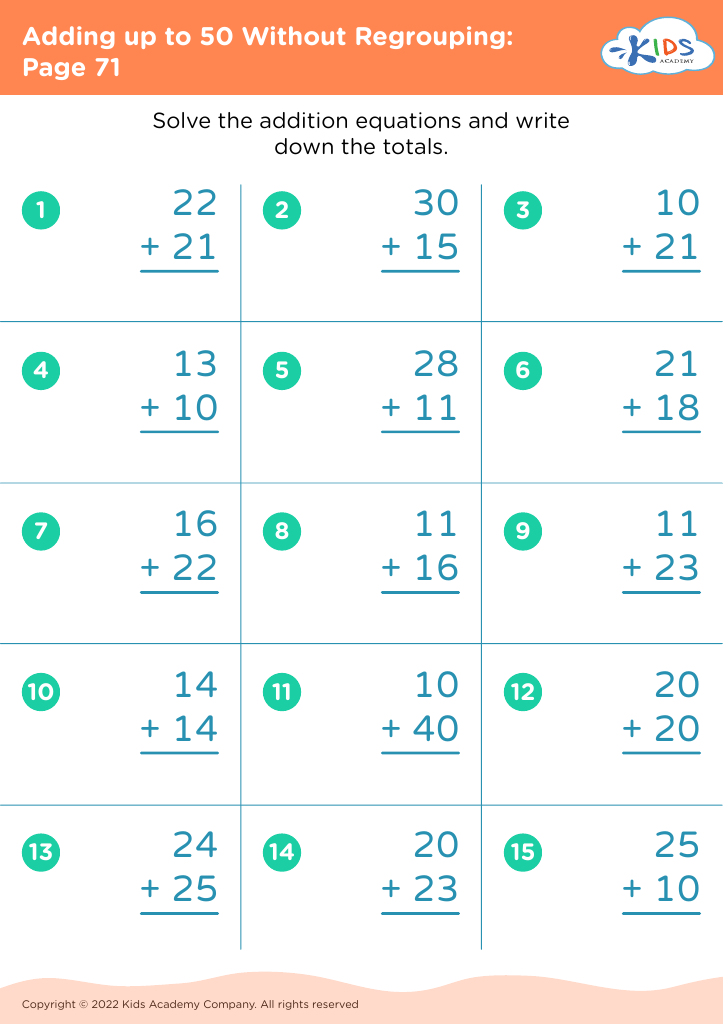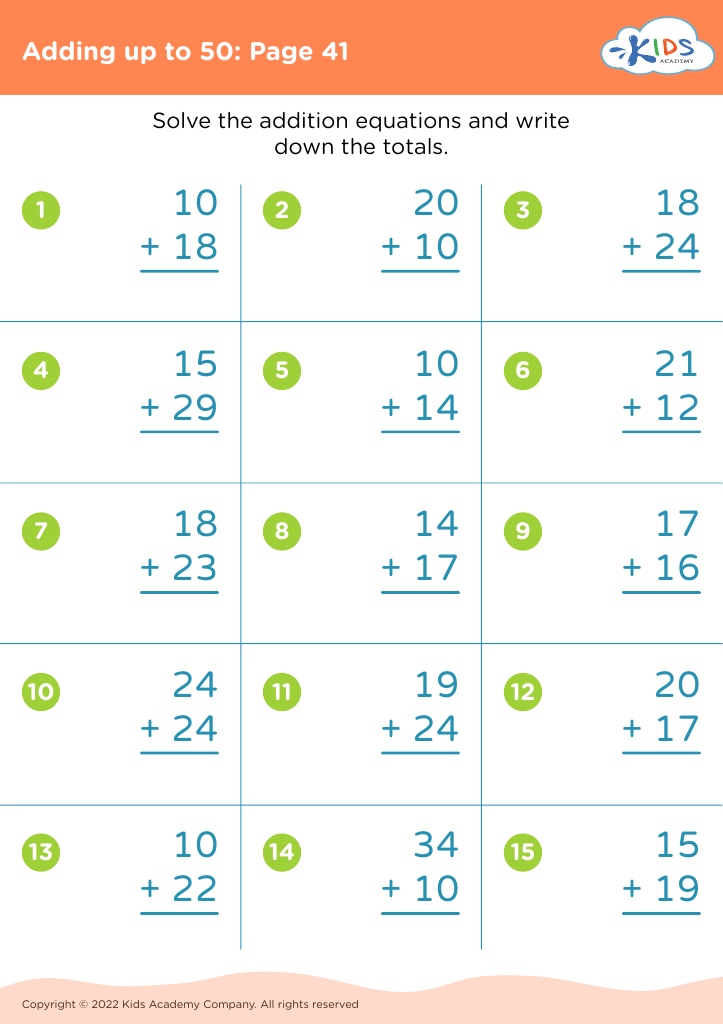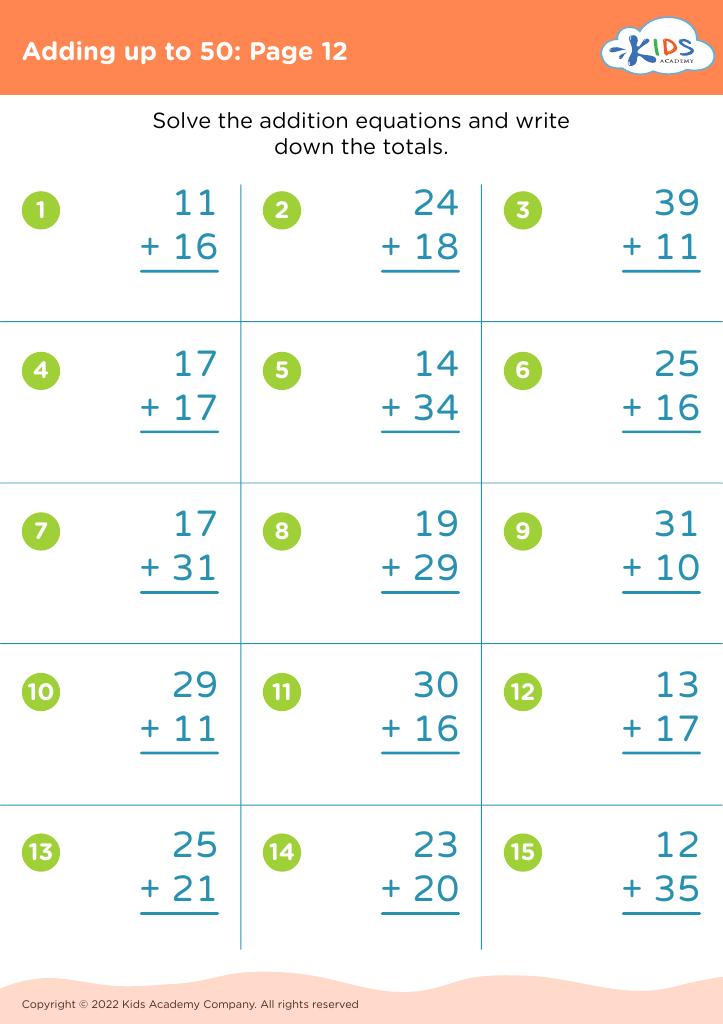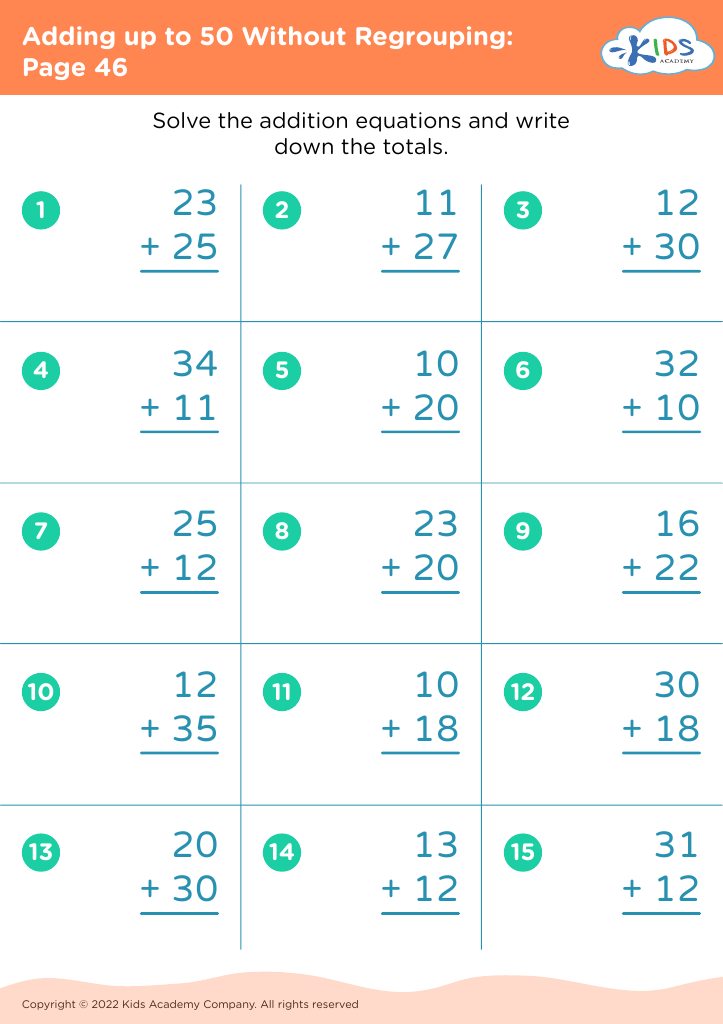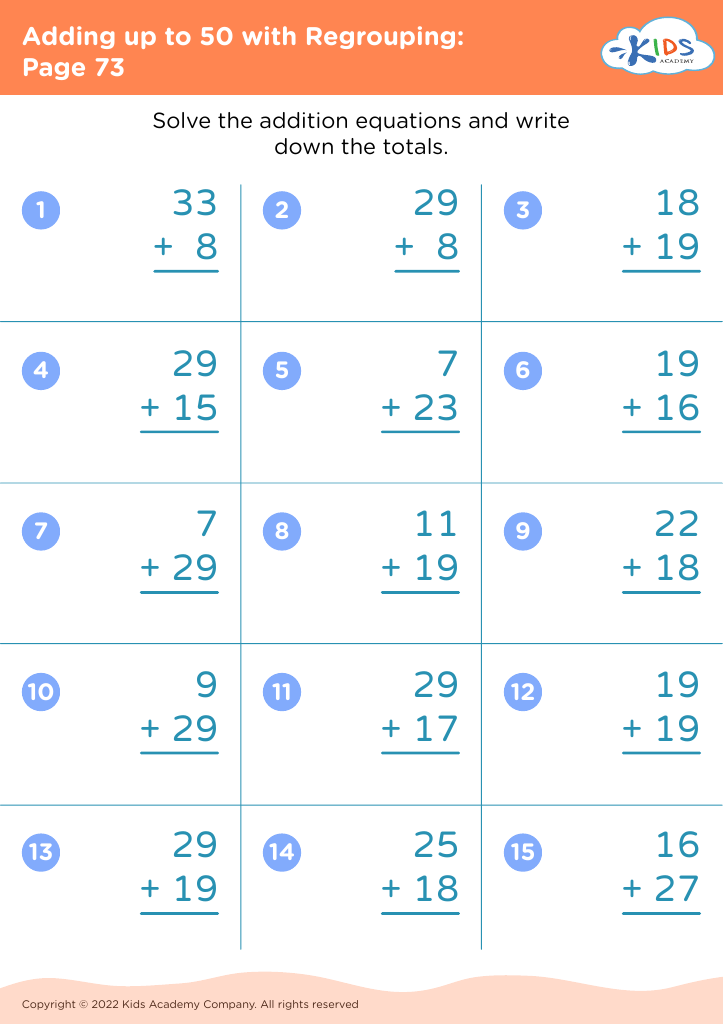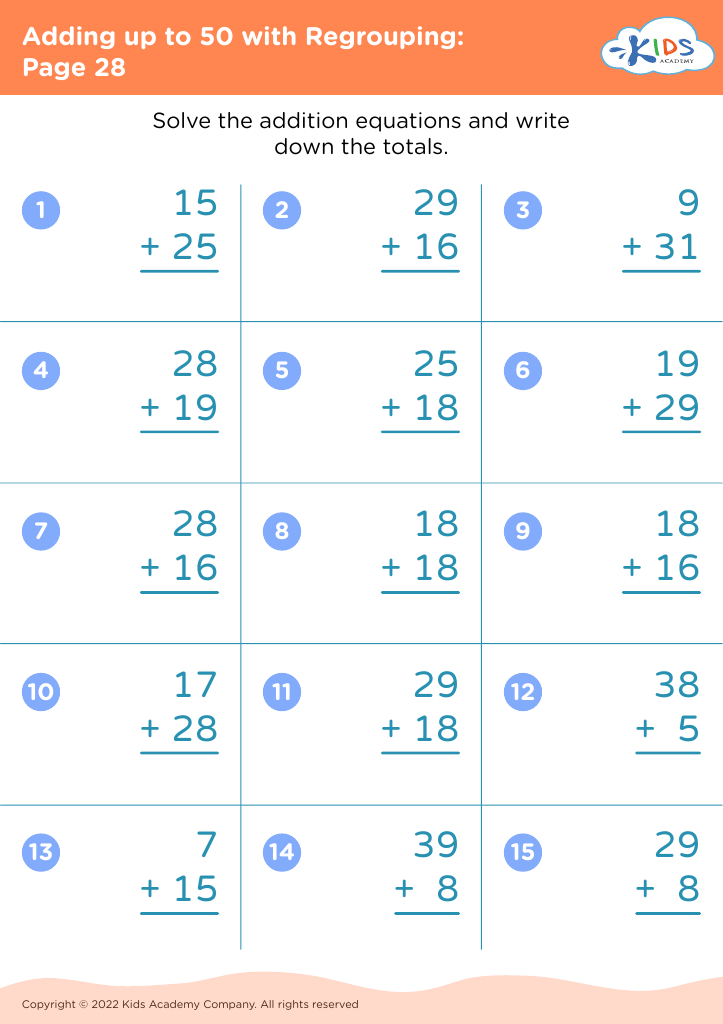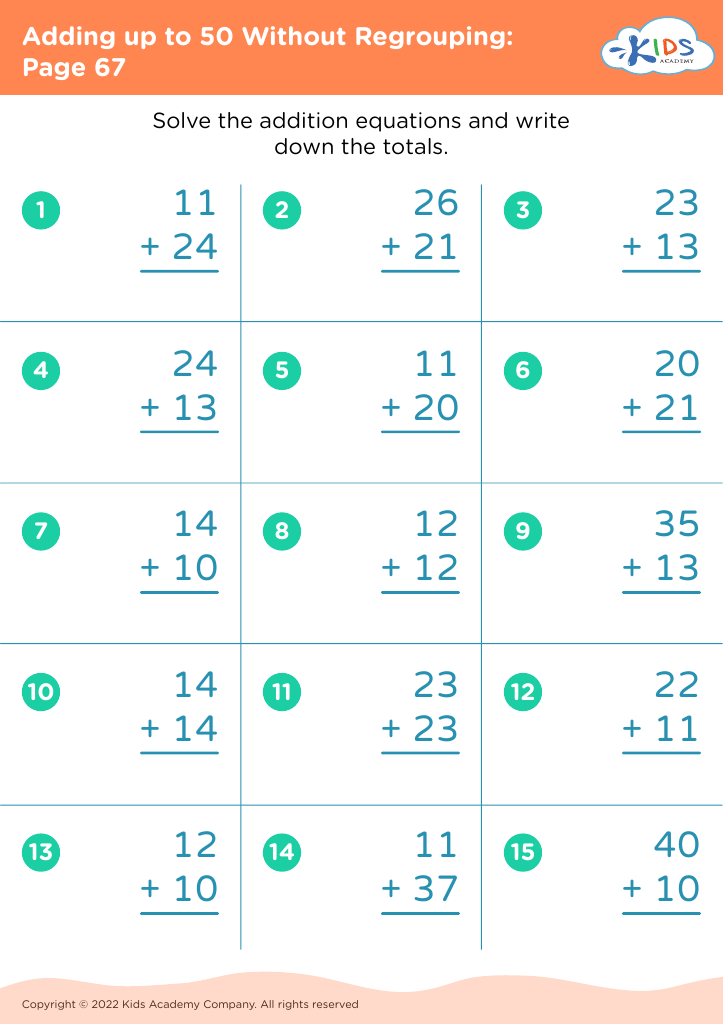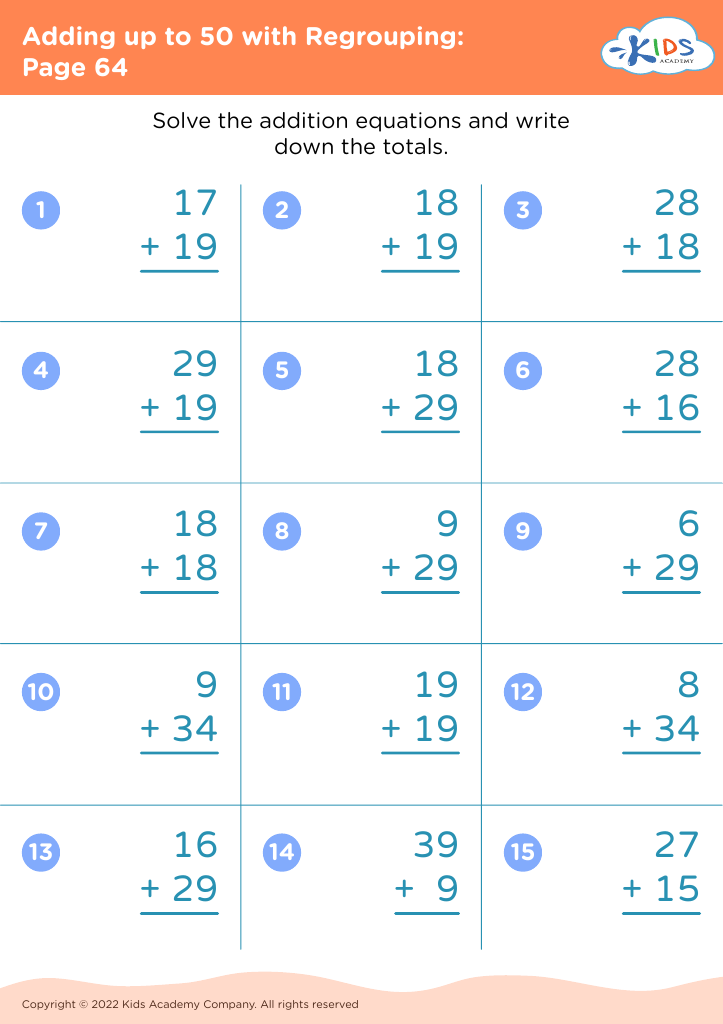Counting practice Adding up to 50 Worksheets for Ages 3-8
16 filtered results
-
From - To
Welcome to our Counting Practice: Adding Up to 50 Worksheets designed for children aged 3-8! These engaging worksheets help young learners master essential math skills through appealing visuals and fun activities. Perfect for home or classroom use, they encourage kids to practice counting and addition in a stimulating way. As they work with numbers up to 50, children will build confidence and develop a strong mathematical foundation. Our user-friendly format ensures that learning is both effective and enjoyable. Start your child’s math journey today with these interactive worksheets to enhance their counting and addition abilities!
Counting practice, particularly adding up to 50, is essential for children aged 3-8 as it lays the foundation for their mathematical understanding and cognitive development. During these formative years, children are naturally curious and eager to learn, making it the perfect time to introduce them to numbers and basic arithmetic. Engaging in counting practice helps enhance their number recognition skills, improves their ability to perform simple calculations, and fosters critical thinking.
Moreover, counting activities can increase a child's confidence and independence in handling mathematical concepts, promoting a positive attitude towards learning. As they progress to adding larger numbers, they develop a mental framework to solve problems more efficiently. This skillset not only applies to math but also in real-life scenarios, such as shopping, sharing, or estimating.
For parents and teachers, encouraging practice through games, songs, and hands-on activities makes learning enjoyable, reinforcing the concept that math can be fun. Additionally, by solidifying these early math skills, caregivers ensure that children are better prepared for more complex learning in later years, ultimately setting them on a successful academic path. Neglecting counting practice risks leaving gaps in their understanding, which can hinder their overall education journey.
